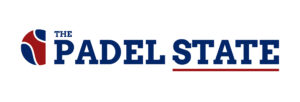An ability to quickly and skillfully adapt to changing market conditions is generally the sign of an excellent business. So, perhaps it should come as no surprise that the largest wholesale racket sports distributor in the U.S. actually started as a custom art-framing business… nor that this tennis giant is now intently focusing on — and investing in — the U.S. padel market.
While I had definitely heard of Fromuth before, it wasn’t until a recent conversation with their Head of Business Development, Conor Shields, that I learned about the company’s unique past.
Shields starts our discussion by telling me, “Fromuth started as an art store offering custom framing, but in response to the tennis boom of the ’70s, tennis equipment started to be sold and it quickly took over the art supply shop. In 1992, Pat and Meg Shields bought Fromuth Tennis with a plan to expand.”
And expand they did. So much so that they are now the single biggest racket sports wholesaler in the entire country, and currently count over 12,000 country clubs and 3,000 retailers, high schools, and universities among their clients.

The Next (Not So) Big Pivot
While the leap from tennis to “racket sports 2.0 revolution” sports like pickleball and padel obviously isn’t as extreme as the jump from picture framing to tennis was, I am curious to hear more about when padel first came onto Fromuth’s radar and if they saw the big opportunity for the U.S. padel market right away.
Shields tells me, “We had heard rumblings about it for the last 10 years or so. A court builder lived in Reading, PA, where Fromuth’s HQ is, and we played at his home court about six years ago. Then Padel Haus and Reserve popped up in New York City and I found myself there three to four times a week. I raved about padel to the Fromuth team and that eventually led to me joining the company full time.”
However, he also explains that it wasn’t until just a few months back that the sheer size of the opportunity became apparent. Shields recalls, “We really saw the potential at Racquet X, an event we anticipated would be 50% padel and 50% pickle. But that was not the case. Racquet X was dominated by padel and you could see all the investment coming into the U.S. behind the sport.”
“Padel has proven success internationally and has all the bones in the U.S. to be just as big here. The biggest factor holding the sport back right now is the lack of courts — but that will not be the case for long,” he continues, before concluding, “padel is certainly a top priority for Fromuth Racquet Sports now given the growth opportunity.”

Actual Skin in the Game
If there’s one overused marketing buzzword I probably hear more than any other — especially in the racket sports world — it’s “authenticity.”
And, while I admittedly only picked the sport up about four years ago, I’m always amazed at how many people flocking into the padel industry have never set foot on an actual padel court (thus giving the term “carpetbaggers” a whole new meaning).
So, it’s beyond refreshing when Shields tells me, “I have become obsessed with the sport. I grew up playing tennis competitively and have played a ton of pickleball, but I enjoy padel the most. Every aspect of the game is fun and it only gets more enjoyable as you get better. Padel was a big reason why I left my job in venture capital and joined the Fromuth team full time. I am extremely excited to be on the forefront of the sport in the U.S.”
He adds, “I am based in Manhattan so I play at Reserve Padel and Padel Haus. Both are tremendously well run clubs with great pros. I have met great people through the sport that have become friends.” He even goes so far as to tell me he’d love to play padel professionally — if only he were better (his words, not mine!).
When I ask about other “greater” padel aspirations he has, he says, “I would love to take a trip to Spain, specifically to the Rafa Nadal academy, with some of my padel friends from the U.S. — so we can find out how good (or bad) we are.”


Fromuth’s Game Plan
Speaking of good and bad, padel is obviously a game that depends heavily on strategy. So, of course, I have to ask Shields what Fromuth’s is for winning over the U.S. market. To which he responds:
“We will help grow the sport by investing in the products that will make padel more accessible in the U.S. Whether it’s sponsoring PadelMBA or selling equipment to your local retail shop or club, we have brought in the top brands from around the globe to help players reach their maximum potential no matter what their level of play is. Over the next five years, we hope to satisfy as many customers as possible by giving them the highest quality product for the best prices they can get.”
Ultimately, Shields says, “It is no longer just talk. Padel is coming to the U.S. in a big way and it is here to stay. Brands, clubs, communities, and distributors are all buying in and that is exactly what you need to seriously grow the game.”
And from my conversation with Shields about the explosive growth potential of the U.S. padel market, it’s clear he and Fromuth plan to be there every step of the way.
Want to get cutting-edge padel news and updates like this delivered directly to your inbox each week? Simply click here to sign up for our free “State of the Game” newsletter now.













